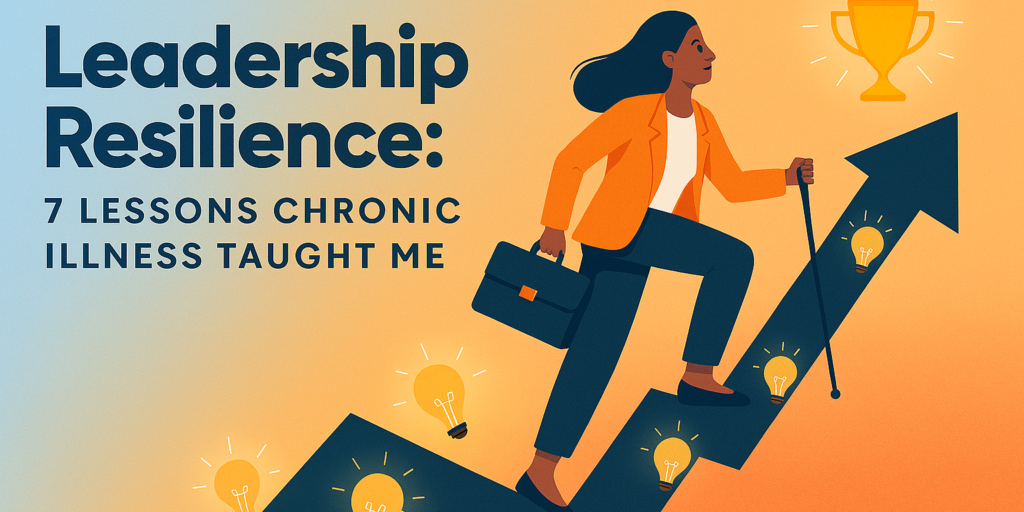Read time 9 minutes
First off, thank you, Universe. Every day I wake up, I feel blessed. Recovery isn’t linear, nor is health, but both are worth fighting for. If you’re reading this blog, welcome to my world of reflection, resilience, and extensive research.

In 2016, my life split into two chapters.
One day, I was in the boardroom, reviewing financial plans and making strategic decisions. Next, in a few days, I was in hospital corridors, waiting for test results, and learning the language of specialists.
It began with Isaacs’ Syndrome. It is a rare neurological condition that brought relentless muscle twitching and fatigue. Then came Lyme disease, Glaucoma , Membranous Glomerulonephritis (a kidney disease), Irritable Bowel Syndrome (IBS), Diabetes, Frozen Shoulder, Eczema, and Blood Pressure issues.
Each diagnosis felt like another wave crashing over me before I’d caught my breath from the last.
It could have been the end of my story. Instead, it became the start of a new one.
What I didn’t realize at the time was that every challenge was quietly training me, not just to survive, but to lead. The same skills I used to manage my projects later helped me manage my health and crises.
Here’s how chronic illness turned me from a patient into a strategist and how you can apply these lessons to your own comeback.
1) Embracing Uncertainty: The First Lesson in Resilience

When Isaacs’ Syndrome hit, I had no plan. My body twitched without warning. Fatigue shadowed every step. I couldn’t predict how I’d feel from one hour to the next.
At first, I fought it. I tried to push through, to pretend nothing had changed. That only made things worse.
Eventually, I learned to stop resisting the unknown and start working with it. I began setting micro‑goals:
- Walk ten extra steps
- Finish one small task at a time without rushing
- Celebrate a pain-free morning
These tiny wins became my fuel. They gave me a sense of progress when the big picture felt overwhelming.
Why it matters for leadership:
In work and in life, uncertainty is inevitable; markets shift, projects stall, crises erupt. Leaders who can stay focused on what’s within their control, and build momentum through small wins are the ones who keep moving forward.
And my situation was no different.
My Practical Tip:
When my future felt unclear and affected my goals, I attempted to win the day and let those wins matter.
2) Started with Self-Awareness

I recognized my unique perspective as both a patient and potential advocate. I identified my strengths through empathy, persistence, storytelling, and problem-solving.
Why it matters for leadership:
It helps leaders understand both themselves and the people they guide. It is like a mirror; it shows leaders who they are, so they can lead with clarity, humility, and purpose.
And my situation was no different.
My Practical Tip:
Daily mindfulness, seeking feedback, knowing, and setting boundaries helped me. Also, tracking triggers made my awareness more actionable and empowering.
3) Build Knowledge

I stayed updated on research, clinical trials, and policy changes. Also, developed skills through clear communication and self-management.
Why it matters for leadership:
Knowledge provides the foundation for making sound, evidence-based decisions. Building knowledge isn’t about knowing everything; it’s about committing to continuous learning. A leader who learns is a leader who grows.
And my situation was no different.
My Practical Tip:
I tried expanding my understanding through reliable medical sources, patient organizations, and research updates.
I paired this with lived experience and peer-to-peer learning. This helped me transform knowledge into practical wisdom and strength. I picked up my platform, built my knowledge, shared useful information with others, and was consistent.
4) Advocate for Change: Through Challenges

One illness was hard. Six at once felt impossible.
When Lyme disease surfaced, I added antibiotics, dietary changes, and brain fog to my daily reality. Glaucoma meant my medication schedule had to align with sunrise and sunset. Kidney disease required learning about immunosuppressants, and the importance of regular lab monitoring.
I experimented with anti-inflammatory foods like turmeric milk, spinach smoothies, ginger tea, and tracked how my IBS and eczema responded. If my blood sugar spiked, I swapped a banana for almonds.
Why it matters for leadership:
Adaptability is the ability to pivot without losing momentum.
In leadership, conditions change, priorities shift, and new competitors emerge.
And my situation was no different. The faster I adjusted without burning out, the more resilient I became.
My Practical Tip:
I treated changes like experiments. Tested, measured, learned, and repeated.
5) Systems Thinking: Managing Health Like a Strategy Game

While juggling multiple conditions, I couldn’t treat any one of them in isolation. Every decision had ripple effects.
I built a health dashboard, a simple spreadsheet with:
- Columns for symptom severity, medication side effects, lab values, and mood ratings
- Rows for daily entries
To my surprise, certain patterns emerged:
Skip glaucoma drops –stress spikes –blood pressure rises –IBS flares. Antibiotics for Lyme –gut flora disrupted –eczema worsens.
By seeing the whole system, I could make smarter choices with fewer recourses.
Why it matters for leadership:
Great leaders see the big picture.
They understand how one decision in marketing affects operations, or how a change in policy impacts morale.
And my situation was no different. Systems thinking helped me with unintended consequences.
My Practical Tip:
I broke down my problem into parts.
Easy said than done, but I looked at how one thing led to another. Then I worked on fixing the whole situation, not just the small pieces.
6) Communication Under Pressure

Hospitals taught me the power of clear, concise communication.
Doctors spoke in jargon: neuroexcitability, autoimmune, and glomerular. My family and I needed clarity, not complexity.
It is then that I started:
- Translating medical updates into plain language
- Keeping daily health journals
- Sending my primary doctor bi-monthly updates with bullet points, and my questions
I made it a practice to meet specialists with organized notes. It saved time, reduced confusion, and ensured nothing was missed.
Why it matters for leadership:
In important situations like a health emergency or a big business deal, being clear really matters.
Leaders who can take complicated things and explain them in a simple, useful way gain trust and help others make smarter choices.
And my situation was no different.
My Practical Tip:
After every important meeting, I wrote a short summary and shared it with everyone who needed to act on it.
7) Decision‑Making with Incomplete Data

No one knew how my combination of illnesses would react to certain drugs. Even the best of doctors had no playbook.
I built my own decision framework:
- Defined my goal – Pain relief? Fewer flares?
- Gathered data – Lab results, research papers, patient forums.
- Weigh risks vs. benefits – Quality of life vs. side‑effects.
- Plan contingencies – What’s my backup if this doesn’t work?
- Set review dates – Reassess in two weeks.
Why it matters for leadership:
Good Leaders are often known to make decisions without perfect information. The key is to be structured, transparent, and ready to adapt.
And my situation was no different.
My Practical Tip:
The map was unclear; therefore, I created my own compass. With the help of family members, I decided, acted, reviewed, and refined things.
From Managing Myself to Leading Others

What began as my survival became my leadership style:
- Blueprint Thinking: Connected points to see the whole picture
- Agility: Adapted quickly to change
- The Information Mastery: Turned complex situations into clarity
- Negotiation: Aligned multiple doctors or experts toward one goal
By navigating my own health journey, every skill I build to lead myself is now helping others.
Remember: Your comeback might start quietly, in the way you manage today’s challenges. Over time, it can grow into a force that moves projects and even lives forward.
Actionable Strategies That Powered My Comeback

If you’re living with a chronic illness and wondering how to rebuild your life, I’ve been there. Big changes didn’t come from one dramatic leap; they came from small, deliberate moves that stacked up over time.
Here’s the playbook that took me from survival mode to momentum:
1. Build Your Health Dashboard

When my health felt unpredictable, tracking became my anchor.
- Note symptoms, treatments, sleep, mood, and key health numbers
- Use color codes to spot patterns, foods that trigger flares, and routines that boost energy
Why it worked for me: Seeing everything in one place turned my guesswork into informed action and helped the doctors in decision-making.
2. Design Flexible Daily Routines

I stopped forcing myself through rigid schedules and started working in short, more focused format.
- I planned time for rest, gentle activity, and essential tasks. My Ayurvedic routine felt more time-consuming than popping a modern pill. From preparing rituals and dietary and lifestyle integration to a timely approach.
- I reviewed often what worked and adjusted treatments, medicines, etc. for the coming days.
Why it worked for me: Flexibility and adapting to changes kept me moving forward without burning out.
3. Create a Communication Playbook

There were multiple doctors to deal with, and endless updates on a weekly basis. It was quite easy to lose track, therefore:
- I summarized each medical conversation in bullet points
- Scheduled regular check-ups with my care team, and family
Why it worked for me: Clear, consistent updates prevented confusion and kept everyone on the same page.
4. Use a Simple Decision Framework

When facing a new treatment or lifestyle change, I asked:
- What was my goal?
- What were the risks and benefits?
- What were my alternatives?
Why it worked for me: This kept my decisions clear and goal intact.
5. Find Your People and Give Back

Illness could have isolated me, but building connections was a powerful medicine.
- I joined online forums that helped
- I listened deeply, and shared my story when it helped someone else
Why it worked for me: Community reminded me that I wasn’t alone, and my journey can light the way for others.
6. Turn Health Skills into Leadership Skills

I began to treat my recovery like a project:
- Every setback taught me something new. It was data to learn from
- Every milestone became a deliverable achieved
Why it worked for me: The same skills I used to manage my health through planning, adapting, and problem-solving are the skills that make good leaders.
Conclusion: Resilience as a Leadership Blueprint

Chronic illness reshaped my life in ways I never expected.
But…
What once felt like endless setbacks became the very training ground for resilience, adaptability, and clarity.
Each diagnosis forced me to slow down, rethink, and rebuild not just my health, but my approach towards work and life.
In my experience, resilience isn’t built in boardrooms or textbooks alone. It’s forged in the quiet, difficult moments when we choose to keep going. By embracing uncertainty, I discovered that the skills that helped me survive also made me a stronger person.
Living with multiple health challenges taught me to:
- Embrace uncertainty
- Start with Self-Awareness
- Build Knowledge
- Use my Voice
- Advocate for Change
- Mentor and Empower others
- Collaborate with Experts
- Lead with empathy
If you’re navigating your own challenges, remember that your struggle can become your strategy. Your comeback doesn’t need to be loud; it just needs to begin.
These lessons go far beyond medical charts; they apply to careers, relationships, and life itself.
DISCLAIMER
This blog reflects personal experiences and viewpoints. It is not a substitute for professional medical advice.


